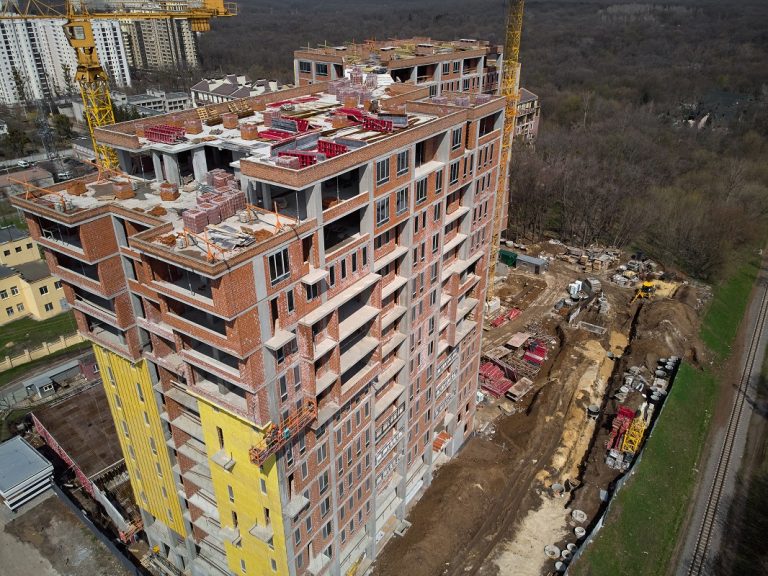- You need to understand building codes and standards to ensure compliance in high-rise construction projects.
- You need to implement strict safety protocols to protect workers, equipment, and the environment.
- You must hire qualified and licensed professionals for quality workmanship and code compliance.
- Maintain thorough documentation throughout the project for accountability and transparency. You must also keep abreast of changes in the industry.
- Following this guide will help you run a successful business while avoiding costly penalties or stop work orders.
As a construction business owner or manager, ensuring compliance in high-rise construction projects is a top priority. With safety regulations, building codes, and other legal requirements, non-compliance can have dire consequences for your business, the workers, and the occupants. But how do you ensure that your construction projects are compliant? This guide will teach you about simple steps to ensure that your high-rise projects comply with the law.
Understand and meet building codes and standards.
The first step to ensuring compliance in high-rise construction projects is to understand and meet the building codes and standards that apply to your project. These codes and standards cover everything from structural design to fire safety to environmental conservation.
You should be aware of the regulations and requirements and ensure that your team meets them too. Violations often lead to penalties or even stop-work orders. Stay up-to-date with the latest codes, as they can change from time to time and can vary between jurisdictions.
Ensure safety protocols are in place.
Safety should be a top priority in all construction projects, especially in high-rise ones. As a responsible employer, you need to implement strict safety protocols that protect your workers, equipment, and the environment. Here are the four steps you need to take for a safe construction site:
Create and communicate a safety plan.

Creating and communicating a safety plan that includes emergency protocols, site rules, and safe work practices is a must. Make sure everyone understands the plan and is following it at all times.
Conduct safety inspections.
Regularly inspect the construction site to identify risks and hazards before they lead to accidents or injuries. You should also ensure that all the materials, equipment, and tools are safe to use.
Perform basic maintenance.
You need to ensure that all machinery and equipment is in good working order. This includes testing, cleaning, lubricating, and replacing faulty machines or components.
Provide proper safety equipment.
Ensure your workers have access to the necessary safety gear, such as hard hats, gloves, eye protection, and protective clothing. And because of the nature of the project, you should also acquire quality fall protection equipment such as anchors, shock-absorbing lanyards, and full-body harnesses that can keep your workers secure in the work environment. They should also be trained on how to use the equipment properly.
By ensuring safety protocols are in place, you can prevent costly accidents and potential legal issues.
Hire qualified and licensed professionals.
The work done in high-rise construction projects isn’t handed over to just any worker. It requires a certain level of skill and expertise, so ensure everyone working on the project is qualified. Hiring certified professionals like engineers, structural consultants, and architects can improve your project’s quality and compliance. In addition, reputable professionals will ensure that all work is done to code and that there are no safety concerns.
Maintain proper documentation.

Documentation is a crucial aspect of ensuring compliance in high-rise construction projects. You can keep records of the construction project’s progress, safety inspection records, and financial transactions in one place.
Documentation can help you avoid disputes with clients and regulatory authorities and ensures accountability and transparency regarding how you run your construction business. Maintain thorough documentation throughout construction work to ensure the entire process is well-documented, making audits smoother.
Keep abreast of changes in the industry.
The construction industry is dynamic, and there are technological, environmental, and regulatory changes. Staying ahead of all the new trends and compliance codes/standards will mean becoming part of a larger community and collecting the necessary information.
Attending industry events and networking with industry leaders can help you stay updated with relevant changes and new ideas. Join local construction associations or other affiliated organizations to access resources, training, and support to stay compliant.
Ensuring compliance in high-rise construction projects is an essential responsibility for any business owner or manager. With the proper safety protocols in place, qualified and licensed professionals hired, proper documentation maintained, and keeping abreast of changes within the industry, you can ensure that your high-rise construction project meets all legal requirements and keeps workers safe. By following this guide to ensure compliance in high-rise projects, you can run a successful business while avoiding costly penalties or stop work orders.










